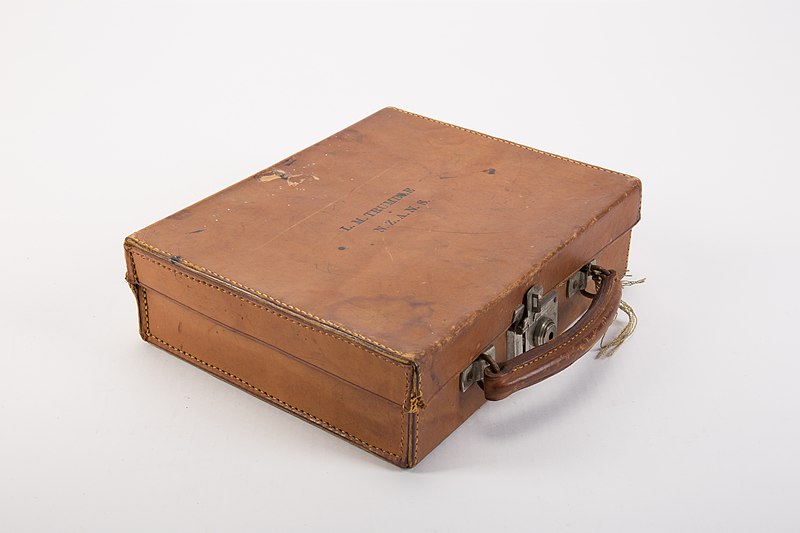|
Holidays and travel are supposed to be full of fun, excitement and joy. Even travelling for work, while it can be mundane, stressful and exhausting, can also be really interesting. Usually, the last thing we expect when we are travelling, is that someone is going to die "On the 27th February 2011, whilst on holiday in Barbados, my husband got off his sun lounger, adjusted his glasses and headed into the sea for a swim. Moments later, I heard him call for help, and watched helplessly from the beach as he was pulled out to sea by a rip tide. He drowned. Bizarrely, after he died, almost the first thing I said was, "But I’m wearing a bikini!" as if bad things can’t happen when you’re wearing a good bikini. But they can, and it did. At the age of 46, I crash-landed on Planet Grief, a place where nothing, not even my own reflection in the mirror, felt familiar." Helen Bailey What to do
The first thing to do when someone dies abroad is to contact the British embassy, high commission or consulate. If the death is in suspicious circumstances, the Foreign, Commonwealth and Development Office can provide specific advice and support. If the death is of someone on a package holiday, the tour operator will be able to help. If you have not travelled with the person who died, the consulate will inform you through the police force or British Embassy. The death will need to be registered in the country where the person has died, and with the Foreign, Commonwealth and Development Office in the UK. The local police or hospital may also be able to help, and an English-speaking lawyer can provide additional support if necessary. There are a number of UK-based organisations that can also provide support, assistance and information. The personal belongings of the person who died will also need to be sent home. Depending on local laws, a post-mortem may need to be carried out; there may also be a post-mortem in the UK if the person's body is brought home. The authorities in the country will need to know if the person had an infectious disease such as a hepatitis or HIV infection. The death may also need to be reported to the coroner in the UK. You as next-of-kin will need to decide to do with the person's body. This could be a local burial or cremation, and will usually need a local funeral director. A funeral abroad will, however, depend on local laws and customs, and on the circumstances of the death. Bringing the person home – repatriation – will need support from an international funeral director. This may require the passport of the person who has died, and will need a death certificate (with a certified English translation), an embalming certificate, and authorisation to take the person's body out of the country. Repatriation is likely to cost up to £4000. The death will need to be registered in the UK. A burial or cremation in the UK will need a burial certificate from the registrar, or a Home Office cremation order. If the person who has died has travel insurance, the insurer may cover a number of things such as medical, repatriation, legal, interpretation and translation fees. The insurer may also have a list of approved funeral directors.
0 Comments
I remember so clearly packing your bag for the last time. Pants and socks. A clean white shirt – I think it was the one you wore when we got married in. The shoes you wore the last time you acted, in Sue Hawkins' All the Lonely People. Your favourite tie. The suit that you joked had seen more funerals than weddings, your Jaguar keyring in your inside pocket, the one you got in the Secret Santa just two months before, and a ticket to the Goodwood Members' Meeting in your top pocket. The race meeting we'd been planning for months. The one that started the day we buried you.
The last time I packed your bag. Planning a funeral for my husband wasn't what I expected to be doing a few months after my 50th birthday. What was a little – ironic, or just providential – was that, a few weeks before he died, we had talked a little about it on the drive home from a friend's burial. Some people have the opportunity and the foresight to discuss funeral plans in detail; all I knew was that he wanted to be buried in Somerset to the soundtrack of Shine on you Crazy Diamond by Pink Floyd.
Funeral directors I used the funeral director that had arranged my parent's funerals a few years before. If you know the person that you want to lead the funeral, whether religious or humanist, ask if they have any recommendations. The National Association of Funeral Directors and National Society of Allied and Independent Funeral Directors have lists. Preparing for burial or cremation You will need to choose whether you want your partner to be buried in a coffin or a shroud. There are eco-friendly coffins available, from bamboo to wool, and even printed cardboard coffins. The undertaker is likely to ask you if you want clothes for your partner. After holidays together where I would pack his bag if he was working late before we went away, I distinctly remember the sadness of packing Tim's bag for the last time. Include underwear and shoes if you want to, and any little things that it feels right. Roald Dahl's coffin included chocolate, a bottle of Burgundy, his favourite HB pencils, a power saw, and his snooker cues. Other examples include flowers, letters, photos, books, rosary beads, religious texts, jewellery and soft toys. Tim was buried wearing his wedding ring, his suit (he'd joked after that funeral a few weeks before that it had been worn to more funerals than weddings), and the shoes he wore for his last acting role. In his pocket were the tickets for the race meeting we were due to go to the day of his funeral, and a Jaguar key ring he'd got the Christmas before from a lovely friend. Be aware that funeral directors may have to remove things from the body or the coffin. For a cremation, these include pacemakers, leather, latex or vinyl shoes and accessories, and bottles of spirits. For a green burial, all clothes and items should be natural materials, and be biodegradable. Planning the ceremony You can choose to have a religious or humanist ceremony, and locate it where you want to (provided they are happy to have a coffin on site). This could be from a place of worship or crematorium to a pub, from a boat to a football ground, from a field to your own garden. You can have hymns, music, poems, bible readings or readings of poetry or prose that mean a lot to you. You can ask friends and family to talk about your partner, and you can speak yourself. From experience, I would suggest having a 'second' who has a copy of your reading or eulogy, and who can step in on your behalf if you can't carry on. A basic structure:
Music can be recorded or live. If you get friends to do the music bear in mind they might struggle to sing of they are overcome with emotion in the moment. The order that things are done can be changed around. For my parents, there was a short ceremony at the crematorium for just family, and then we moved to the church for a service. Tim's burial immediately followed the church service. At a friend's funeral, we had a service and then waved her farewell at the gates. The funeral directors went to the crematorium and we went to the wake. Pallbearers There are traditionally four or six pallbearers, and these can be men or women. They will carry the coffin at waist or shoulder height. It's often done by friends or family, supported by the funeral director's team. It's a big responsibility, and it's important to accept that some people may not wish to do this. The costs Funerals can be expensive, but there are ways that you can keep the costs down. Check whether your partner had a pre-paid funeral plan, but be aware that this may not cover everything. If you are on certain benefits, you can claim a Funeral Expenses Payment from the government up to six months after the funeral. Inviting people You can invite just specific people to the funeral – for example family or close friends – or open it up more widely by posting details on social media, in the newspaper, or online, for example on the funeral director's website. Dress codes Particularly in the Western world, black is a traditional funeral colour. This may go back to Roman times, where people in mourning wore a dark-coloured toga (toga pulla). If this doesn't suit you, you can ask people at the funeral to wear a particular colour that's important to you, carry a certain flower, or wear bright clothes. Setting up a live stream During the COVID-19 lockdowns, many people were unable to attend the funerals of families and friends. Livestreaming funerals became more common, helping people to come together. As a result, an increasing number of churches, crematoria and funeral directors are now offering livestreaming. This allows people who are ill, too elderly to travel, or who live too far away to be able to attend. It's also possible to set up a livestream using Facebook, WhatsApp or Skype. Preparing yourself The day of the funeral will be tough. Check out the location so that you have somewhere to escape to if you need it. Stand tall, be proud of the person whose life you are celebrating. Clench your buttocks if you need to hold things in, but otherwise – weep silently, sob, howl, smile, laugh, talk or be silent. Or all of those, in any order. This is their day, but it is a day for you too. Negotiating with families You may have the freedom to have the day exactly as you want it, but you may also have to negotiate with family. If you and your partner have made plans beforehand, make sure everyone knows what will happen, and that it is how your partner wanted it. However, your partner's family may have fixed ideas in what they want. You may need to stand your ground, but you also may need to make some compromises. They are grieving too. You can get a Funeral Expenses Payment from the government if you get certain benefits. This money can go towards:
The payment can be claimed within 6 months of the funeral. You can claim by phone or post. The money will be deducted from any money that you get from your partner's estate, not including a house or personal things.  This isn't a post about widowhood. It's a post about the time before. Tim died so suddenly that we weren't able to put any plans in place. Over the almost four years since Tim died I have seen two beloved friends die of cancer, and have talked through plans with them. Plans make a hard time easier for the people that we leave behind. Make a will Tim didn't and it just added to all the things I needed to do at a time when I was falling apart. So make a will. Make sure that people know if you're going to name them as executors and make sure they know where to find it. Include a statement that you're revoking all previous wills. Get legal advice if you need to. This may be available free from a charity if you include a bequest, or via your union. Wills can be about actions as well as assets, and you can include things that you want people to change, or not to change. These can be quirky if you are in the mood and you think the recipient will appreciate it - for example, "I'll come back and haunt you if.... you dig up the red rose bush, or you don't use those concert tickets we've got." Make an additional list of any things that you want to go to particular people, where they aren't big enough to go in a will. Your favourite pen, for example. Also, think about what needs to happen to pets. Power of attorney A power of attorney will make life easier for the people around you if you think you might become so incapacitated that you can’t make decisions. You will need one for health and welfare, and one for finances and property. These need to be registered with the Office of the Public Guardian to make them legally effective. This requires a fee and can take several weeks to be put in place. Other paperwork Make a list of important information:
Consider simplifying finances, for example consolidating everything into one bank account and one credit card. Having some form of joint account, even if you also have separate accounts, means that someone left behind can access money in those first few weeks of 'afterwards'. Check that anything that has a named beneficiary on it, such as a pension, goes to the right person. Practical things and medical requests If you are likely to be ill for while, check out benefits that might be available for you and your carers, and contact social services for help with things like hoists and commodes. You can put into writing your feelings about treatment, do not resucitate (DNR) orders, withdrawing feeding and drinking, pain relief and organ donation. You can change or revoke these as your feelings change. Technology Set up a password manager like LastPass and get all your critical passwords and other things into it, and give the overarching password to your partner, a member of your family, a close friend or the executor of your will. This should include not only passwords, but where you need to give memorable dates or other pieces of information. Think about your digital legacy – Twitter, Facebook, Instagram, photos, music playlists, mobile phones, laptopts, iPads and tablets, cloud storage, backups etc – and make sure people know what you have, what the passwords are, and what you want doing with them. Let people know if you want these closed or memorialised (where allowed). Go through social media accounts if you think that there is anything that you think might make people unhappy to see after you are gone. Tell someone where all the instruction manuals are. Funeral plans Consider your funeral plans and write them down. Do you want:
Think about:
Finding a funeral director that you can lodge your plans with can be good. You can always revisit these plans – they are not set in stone. Funerals can be expensive. The average funeral costs just under £5,000. It really doesn't have to, but people will try to get you to spend money on gold plated coffin handles and fancy printed orders of service when you're in no fit state to argue. A graveside funeral is likely to be the cheapest option if cost is an issue. Stick with what you want - plain or fancy. 'Stuff' Start decluttering if you can. Perhaps starting with the random crap that one (okay, me) has on their desk. I found going through Tim's desk achingly hard. If you just leave the meaningful things it can be easier on your family. Create piles for bin, save, sell and donate - you can sell stuff on eBay and donate 10-100% to charity. Don't get rid of everything though. There will be things of yours, even little tiny silly things, that people will want to remember you by. And you need to carry on in a lovely, comfortable place that's you, not a sterile room. Give your family and friends permission to throw things away, too. I still feel guilty when I get rid of something of Tim's. Make a bucket list Create a bucket list of things you want to do, people you want to talk to, places you want to go, things you want to buy, films, plays and bands you want to see, and get on with making it happen. This is your bucket list, and it can be as big or small as you want it to be. The list can be tailored to how well you are and what you can afford - travelling can be real or virtual, gigs can be in person or live streamed. Create memories
Remember… Use your time wisely. Don't spend so long sorting practicalities that you don't spend time with the people you love. Some reading In Case you get Hit by a Bus What to do after a death |
AuthorI was widowed at 50 when Tim, who I expected would be my happy-ever-after following a marriage break-up, died suddenly from heart failure linked to his type 2 diabetes. Though we'd known each other since our early 20s, we'd been married less than ten years. Archives
July 2024
Categories
All
|





 RSS Feed
RSS Feed